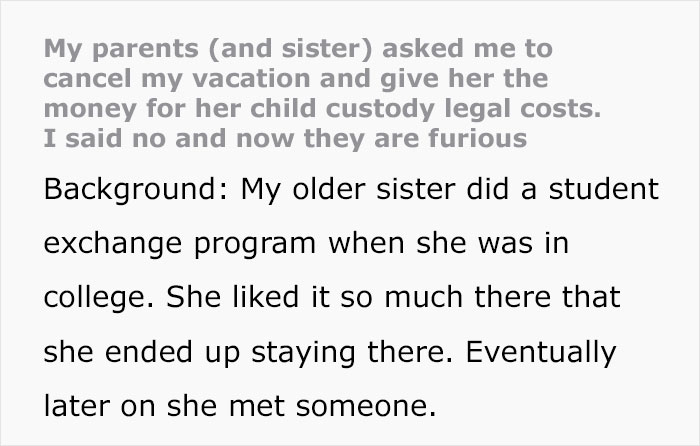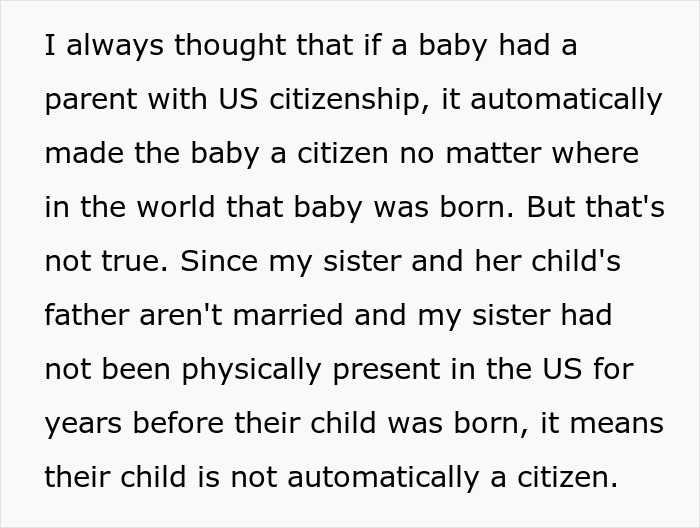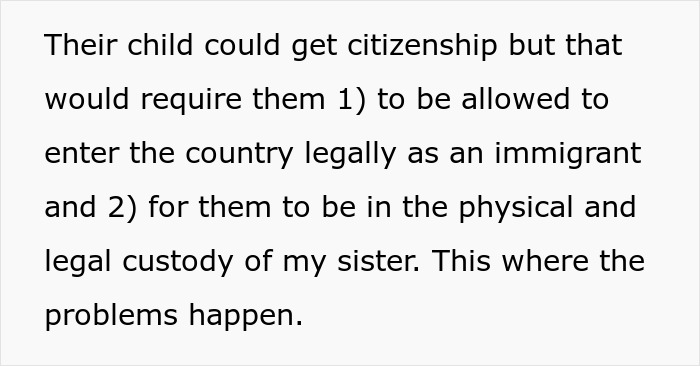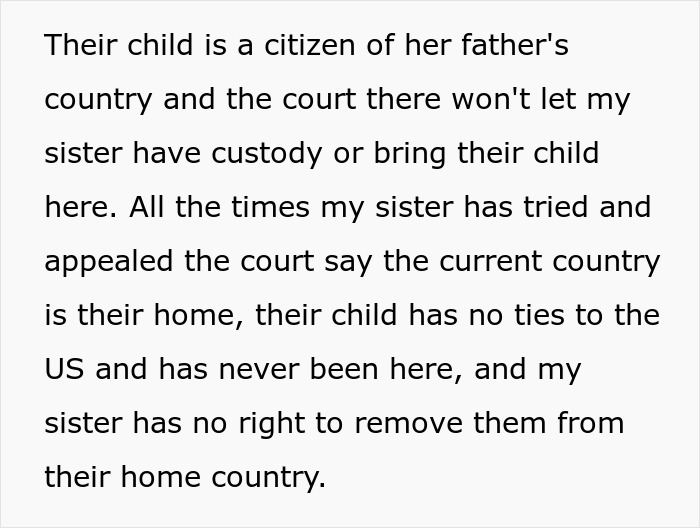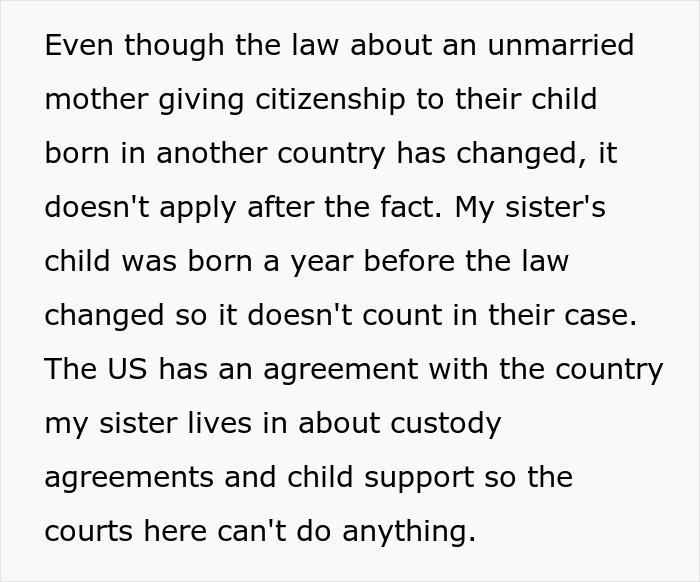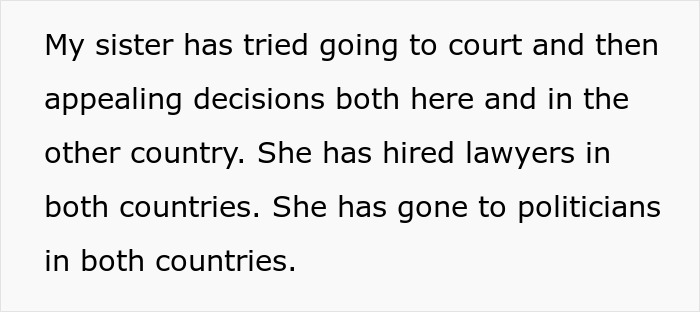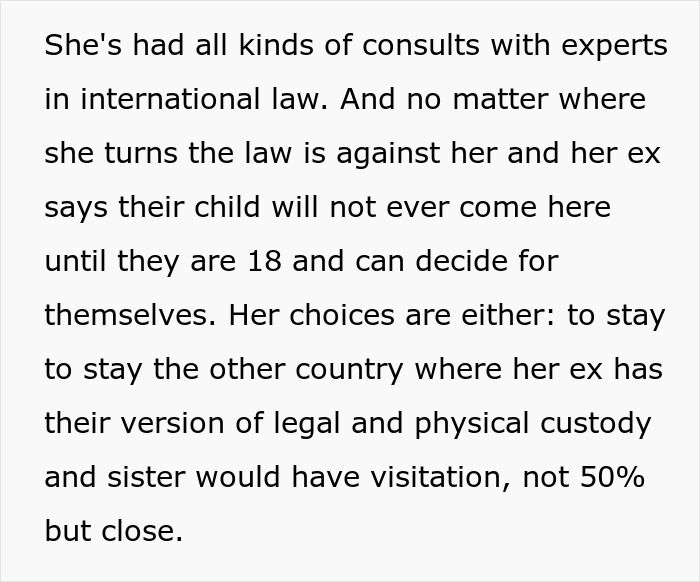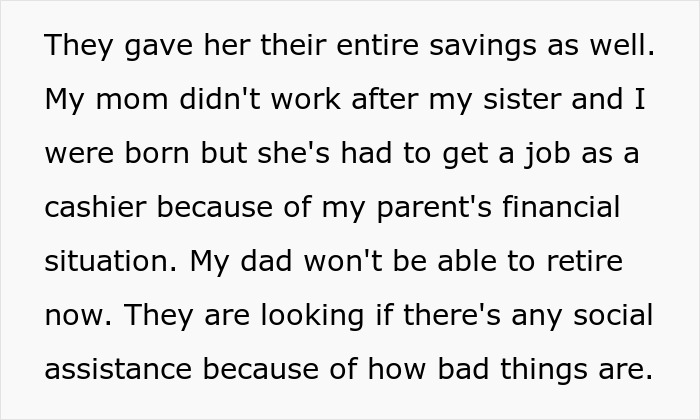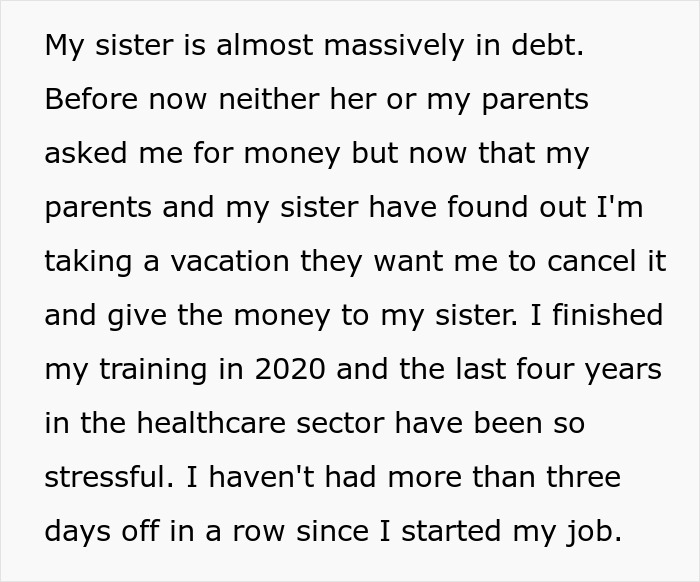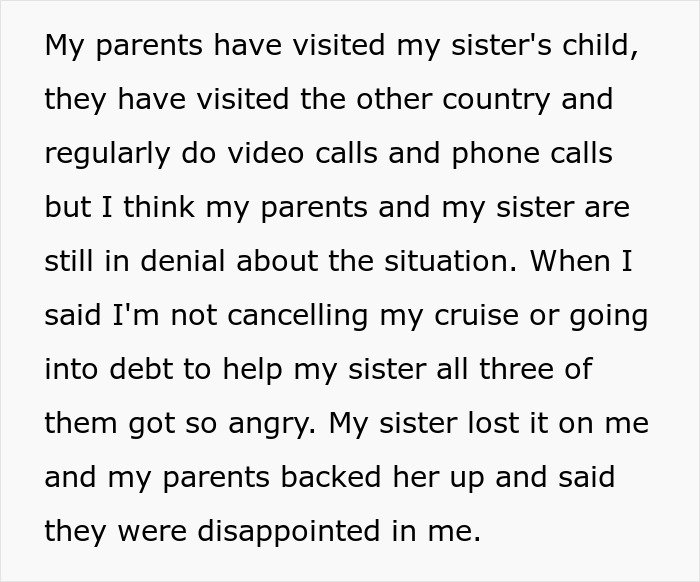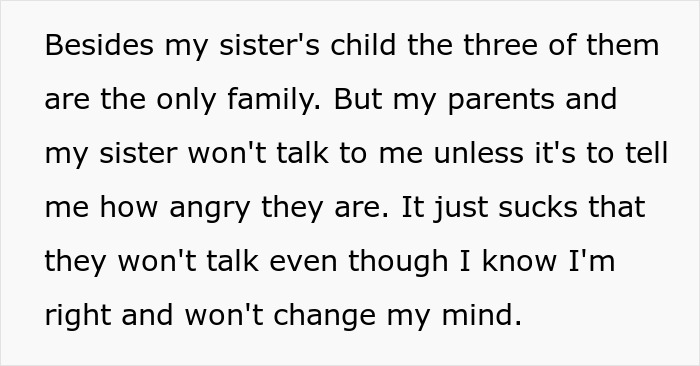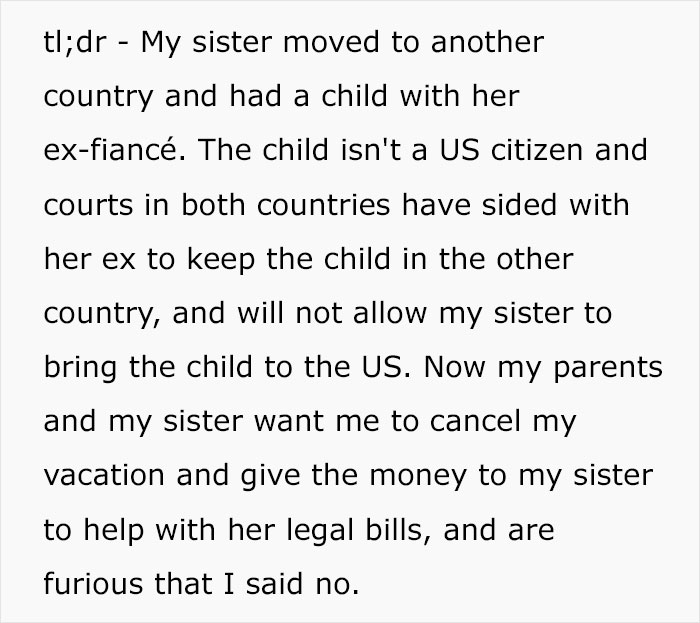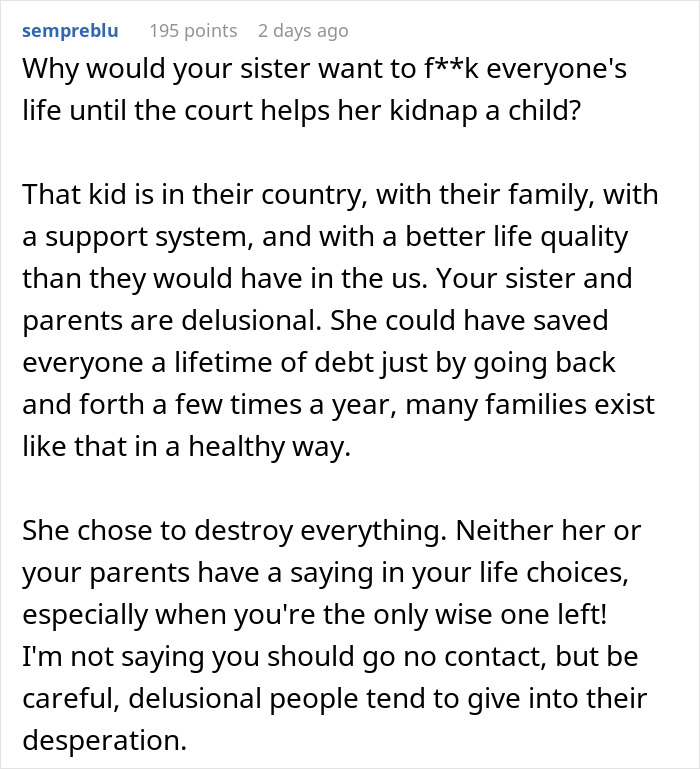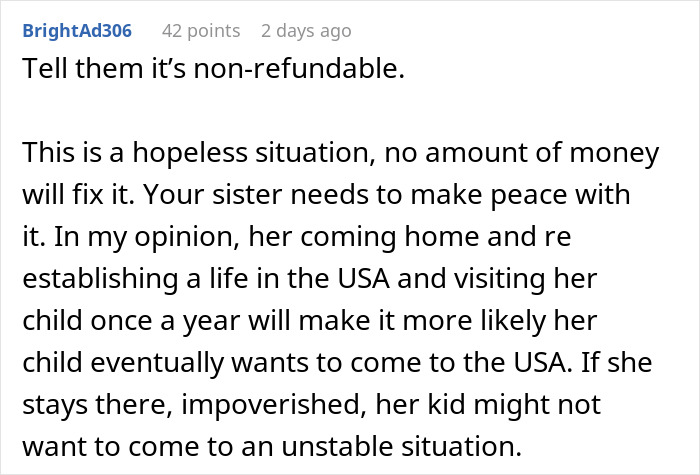For this redditor, it was their sister, who needed financial help due to a long and complicated custody battle. And even though the OP’s parents were giving nearly all their money away, the redditor wasn’t willing to go into debt or cancel their long-awaited vacation, for that matter, to support their sister. Scroll down for the full story below. Below you will also find Bored Panda’s interview with an expert in finance, a founding member of the Financial Planning Association of Canada and the co-founder and CEO of ‘Spring Planning’, Julia Chung, who was kind enough to answer a few of our questions.
Handling personal finances can be complicated enough as it is, not to mention when someone you love needs financial help
Share iconImage credits: varyapigu / envatoelements(not the actual photo)
This person was chastised by their family for not canceling their vacation and giving their money to their sister
Share icon Share icon
Share icon Image credits: mstandret / envatoelements (not the actual photo)
Share icon Image credits: Wavebreakmedia / envatoelements (not the actual photo)
Share icon Image credits: Prostock-studio / envatoelements (not the actual photo)
Share icon Image credits: throwaway_19524
It’s crucial to make sure that you’re financially comfortable yourself before helping others
“Money is a really interesting human creation. When we think about how it started, as a way of easing trade so that the goat farmer and the potter and the carpenter could all translate their work into something that was useful for everyone, no matter what, we understand that money is essentially a proxy for something else. It’s really easy to take that original proxy idea and start to put money in the place of a lot of different things,” Julia Chung pointed out. “Families are incredibly complex systems that involve so many different things, especially emotional attachment,” she continued, adding that in an emotionally fraught situation, money can become a proxy for something that isn’t working in the family system. “In those situations, the fights and strains start to look like they’re about money, because that’s what people are talking about. However, it’s pretty rarely about the actual money and more often it’s about an unspoken emotional need or a clash in values.” According to the expert, families tend to be informal systems, where communication can be stunted by assumptions. “We assume we know what the people in our families are thinking and feeling. We assume we know these people, their values, their situations, and what’s important to them. We remember past hurts and we weave them into the stories we create about the people in our families. It’s very easy in those situations to pass judgment, and then to use the proxy of money as an outlet for the emotional connection that is missing.” Whether or not money is the actual reason behind certain finance-related disagreements, they might result in you deciding to help the person in need after all; however, it’s important to make sure that you’re financially comfortable yourself before helping others. “It’s vital to be financially comfortable or ‘secure’ before giving money to others,” Julia Chung emphasized. “Just like our flight attendants ask us to put our own mask on before helping others in case of emergency, we need to be in good shape ourselves before we can support someone else. Creating that security means not only that you’ll have the ability to give comfortably, it also means you won’t regret it later and that regret won’t impact the relationships you continue to have with the people you’ve supported.”
Share iconMany people believe that family members are at least somewhat responsible for helping those of their kin financially
Image credits: Pressmaster / envatoelements (not the actual photo) When one is in need of help, it’s often family members who rush to the rescue first, making siblings no exception. However, people’s views on how much one should actually help those of their kin and what exactly said help should entail tends to differ. A 2023 survey carried out by Pew Research Center found that both parents and children are expected to help other family members, be it financially or providing assistance in other shapes and forms. For example, roughly two-thirds of respondents believe that adult children should have a great deal or a fair amount of responsibility to provide caregiving for an elderly parent. More than half (55%) of them also believe that adult children should provide their elderly parents with financial aid, too. However, the survey revealed that many people think that parents should help their children, too, as should siblings. As much as 31% of respondents say the former should have a great deal or a fair amount of responsibility to provide financial assistance to their adult children (while 44% think they should have some and 25% saying they have no such responsibility). When it comes to siblings, 24% of respondents believe people should have a great deal or a fair amount of responsibility to help their brothers and sisters financially (vs 41% who say they are only somewhat responsible and 34% saying they have no such responsibility). Clearly, opinions on the matter differ not only among members of the OP’s family. Data shows that they vary not only on personal views, but on people’s age, too; older individuals are more likely to say that it’s a child’s responsibility to provide aid for their elderly parent. In the meantime, younger people are more inclined than their older counterparts to say that parents should save up money to hand down to their children after their death.
Share iconThe majority of money-related sibling conflicts seem to revolve around their parents
Image credits: Prostock-studio / envatoelements (not the actual photo) While family members arguing over money-related issues sounds like a tale as old as the world itself, the number of siblings who do might not be as high as you think. According to Ameriprise’s Family Wealth Checkup study from 2017, roughly 15% of brothers and sisters have conflicts over money. The most common reasons for said conflicts are reportedly related to parents; they entail issues regarding how their inheritance is divided, which sibling supports them more, or which receives more support from them. Other money-related disputes between siblings revolve around different money values and spending habits, varying levels of income, and issues regarding repaying money respectively. It’s unclear if the OP was fearful of their sister not repaying the money if they were to cancel the vacation and lend it to her; chances are, the family expected the redditor to give their money away expecting nothing in return altogether. No matter the case, the OP was not willing to cancel something they had been waiting for for so long and give up their hard-earned money. “I think it’s really important to spend some of your hard-earned money on yourself,” Julia Chung told Bored Panda. “I don’t believe we’ve been given these lives so that we can toil until we are dead. I also think some people take a ‘crash diet’ approach to spending, where they limit themselves heavily, and then they get to the equivalent of a weekend and eat all the cake. “Moderation and balance, which is by no means easy for people, is super important to be healthy, whether it’s your mental, physical, or financial health. Take care of yourself first, so that you have the energy, and the means to take care of others.”
Fellow netizens shared their thoughts in the comments
Anyone can write on Bored Panda. Start writing! Follow Bored Panda on Google News! Follow us on Flipboard.com/@boredpanda!

